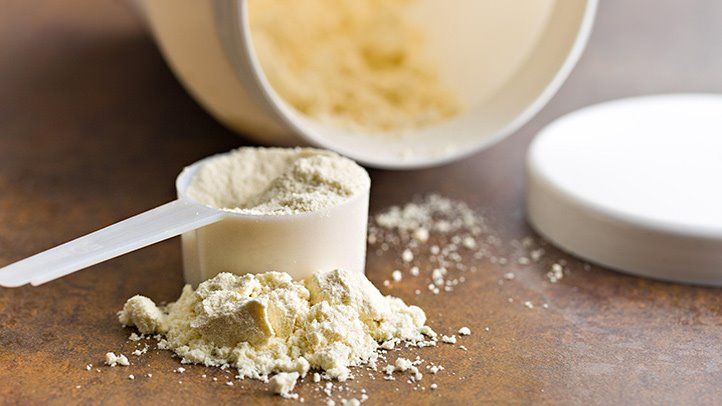How Ashwagandha Can Impact Your Menstrual Cycle
Ashwagandha is an ancient medicinal herb that has become increasingly popular in recent years. Known scientifically as Withania somnifera, ashwagandha is an adaptogen - meaning it helps the body manage stress more effectively.
There are many ashwagandha benefits, from reducing anxiety and improving focus to regulating blood sugar levels. However, due to its effects on hormones, some women wonder: can ashwagandha make your period late?
How Ashwagandha Affects Hormones
To understand if and how ashwagandha might impact your menstrual cycle, it helps to first look at how this herb interacts with hormones.
Animal and human studies show that ashwagandha may:
- Increase thyroid hormone production
- Boost testosterone levels in men
- Improve follicle-stimulating hormone (FSH) levels
- Reduce cortisol levels caused by stress
By improving thyroid, testosterone and FSH function while lowering excess cortisol, ashwagandha helps regulate reproductive health and fertility for both men and women.
Ashwagandha and Estrogen Levels
Estrogen is the primary female sex hormone. Along with progesterone, it is responsible for regulating the menstrual cycle each month.
Low estrogen levels can cause irregular periods, infertility, early menopause and other hormonal imbalances. While moderate estrogen helps protect womens health, too much estrogen also comes with risks.
At this time, there isnt much evidence showing ashwagandha significantly impacts estrogen levels. A small study in 36 women over age 45 taking ashwagandha root extract for one year observed clinically significant increases in estrogen. More research is still needed.
Can Ashwagandha Make Your Period Late?
Because hormonal balance is very intricate, any substance that changes one type of hormone has the potential to indirectly impact other hormones.
So while ashwagandha may not directly increase or decrease estrogen levels much, its effects on thyroid, cortisol and other hormones could still change your menstrual cycle.
Additionally, by improving fertility for women with hormone imbalances causing difficulty getting pregnant, ashwagandha might normalize menstrual cycles that were previously absent or irregular.
Other Potential Menstrual Changes
Besides potentially making your period late, ashwagandha may influence your menstrual cycle in other ways too:
- Heavier bleeding - Ashwagandhas possible estrogenic effects could increase bleeding.
- More painful cramps - Higher progesterone levels often worsen PMS symptoms.
- Longer cycles - Effects on thyroid and stress hormones could slightly lengthen cycles.
That said, these effects are likely quite small. Significant menstrual changes possibly indicate an underlying health condition.
Should You Take Ashwagandha for Hormonal Balance?
Given its positive effects on thyroid function, testosterone, fertility and stress adaptation, ashwagandha shows much promise for helping women balance hormones.
Some key instances when ashwagandha may help improve female hormonal health include:
Treating Hypothyroidism
Hypothyroidism, or underactive thyroid, is a common cause of female infertility and hormonal issues. This happens when your thyroid gland doesnt make enough thyroid hormone.
Symptoms of hypothyroidism include:
- Fatigue
- Weight gain
- Difficulty concentrating
- Muscle weakness
- Irregular menstrual cycles
By potentially boosting thyroid hormones back to normal levels, supplements like ashwagandha may help resolve low thyroid-related menstrual problems.
Increasing Testosterone
Testosterone is often thought of as the male hormone. But women also need testosterone for optimal health.
Benefits of optimal testosterone for women include:
- Better libido and sexual enjoyment
- Improved muscle mass and athletic performance
- Increased motivation and energy
- Better mood regulation and concentration
And for those struggling to conceive, higher testosterone levels can make it easier to get pregnant. So ashwagandhas testosterone-boosting effects might also enhance female fertility.
Lowering High Cortisol
We all experience stress at times. But when stress hormone (cortisol) levels stay continuously high, this wreaks havoc on reproductive health.
Possible effects of long-term high cortisol exposure include:
- Missing or irregular periods
- Lower estrogen and testosterone
- Higher risk of infertility or early menopause
- Worse PMS symptoms
By adaptively lowering excess cortisol, ashwagandha helps curtail stress harmful effects on the body - including your menstrual cycle and fertility.
Increasing FSH Levels
FSH stands for follicle stimulating hormone. True to its name, FSH controls ovarian follicle development and reproduction capabilities.
Low FSH levels may cause:
- Difficulty getting pregnant
- Irregular menstrual cycles
- Reduced estrogen production
Research shows ashwagandha might increase FSH and luteinizing hormone levels in infertile women. This suggests ashwagandha supplementation can enhance fertility outcomes.
Other Tips for Balancing Hormones Naturally
While ashwagandha is excellent for hormonal health, combining it with other evidence-based strategies maximizes results.
Additional ways to naturally balance female hormones include:
Follow a Hormone-Friendly Diet
Certain foods help balance hormones - while others through them further out of whack. Try eating more:
- Healthy fats - Coconut oil, avocado, nuts, seeds and wild-caught salmon provide essential fatty acids and fat-soluble vitamins for hormone production.
- Non-starchy veggies - Broccoli, mushrooms, leafy greens, cauliflower and celery help remove estrogen from the body so it doesnt build up to excess.
- Herbs & spices - Turmeric, cinnamon, sage, ginger and cumin each have antioxidant and anti-inflammatory benefits that help moderate estrogen.
And limit foods that tend to worsen hormone imbalance like refined carbs, alcohol, caffeine, conventional meat and soy products.
Reduce Chronic Stress
As mentioned earlier, continued high stress elevates cortisol - which disrupts the intricate balance of female sex hormones.
Relaxing activities like yoga, meditation, deep breathing and massage help lower cortisol back to normal ranges so other hormones can also normalize.
Get Plenty of Sleep
Not getting enough sleep messes with hormones in two key ways. First, skimping on sleep increases hunger and cravings for sugary, fatty foods that promote hormone dysfunction. Second, poor sleep directly exacerbates cortisol and insulin resistance - further affecting reproductive health.
Try sticking to consistent bed and wake times. And create an environment conducive for restful sleep by limiting light and digital stimulation after dark.
Supplement as Needed
besides ashwagandha, other beneficial supplements for female hormonal health may include:
- Vitamin D - Boosts estrogen metabolism while reducing risk of conditions like ovarian cancer, PMS and infertility.
- Omega-3s - Helps regulate menstrual cycles by competing with excess omega-6 fatty acids.
- Maca root - Another adaptogenic herb shown to balance female sex hormones and improve fertility.
- DIM - Diindolylmethane helps metabolize and remove spent estrogen from the body.
When using supplements, opt for high-quality brands sourced from reputable suppliers. Start with smaller doses, then work up from there.
The Bottom Line
Ashwagandha is an impressive adaptogenic herb offering many benefits for hormone balance, reproductive health and fertility - especially when combined with other lifestyle optimization strategies.
While more research is still needed, ashwagandha appears unlikely to significantly impact menstrual cycles or directly make periods late.
However, its beneficial effects on hormones like thyroid, testosterone and cortisol could normalize irregular cycles possibly related to imbalances in these other hormones.
If you notice sudden menstrual irregularities or unusual PMS symptoms after starting ashwagandha, consult your doctor to rule out other possible medical reasons. Track your cycle diligently, and consider lowering your ashwagandha dose or taking a brief break from supplementation to see if normalcy resumes.
Overall though, ashwagandha remains a smart, science-backed choice for supporting female hormonal health naturally.
Disclaimer: This article is for informational purposes only and does not constitute medical advice. Always consult with a healthcare professional before starting any new treatment regimen.
Related Coverage
Dates are too high in carbs for keto diets. Find out which low-carb fruits can fit into a keto eating plan, like berries, avocado, tomatoes and olives....
Enjoy the many health perks of olive green snacks and produce like spinach, kale, avocados, green beans, and artichokes. Learn simple tips to add more antioxidant-rich greens....
Explore the causes, symptoms, and management strategies for keto diet sweating – a common side effect experienced during the transition to ketosis....
Pretzels are high in carbs yet can be enjoyed in moderation on keto. Learn about pretzel nutrition, low carb swaps, keto recipes and tips for fitting pretzels into your diet....
Learn about the glycemic index and find over 150 easy low GI recipes for breakfasts, mains, sides and desserts in this complete cookbook guide for managing diabetes....
Learn how the three phases of the South Beach Diet work for weight loss, heart health and diabetes management. Understand the pros, cons and tips for following this popular diet successfully....
Keto Activate powder by Ancient Nutrition provides exogenous ketones to help boost ketosis. Learn about the ingredients, benefits, side effects and proper usage....
Follow this detailed guide to ordering keto-friendly meals at Texas Roadhouse. Learn the best low carb menu items, customization tips, nutrition resources, and more....
A 1.5oz shot of Casamigos tequila contains around 100 calories, with zero carbs or protein. Learn more about the calorie count, keto-friendliness, and nutrition facts of this ultra-smooth premium tequila....
Couscous is very high carb, which typically does not fit keto diet rules. But occasional small servings or low carb couscous alternatives may work in some cases....









